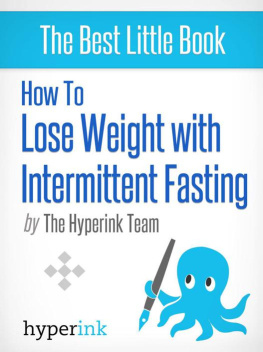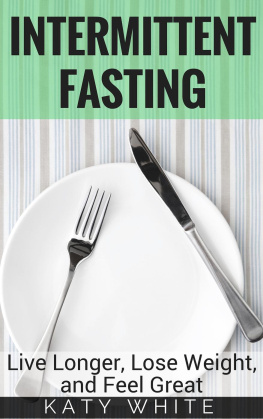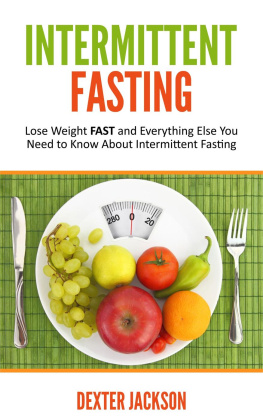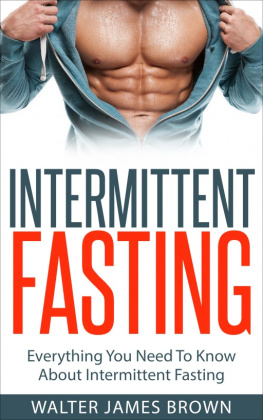How to Lose Weight with Intermittent Fasting
Introduction
People who want to lose weight are frequently confused by the wide range of available diets and exercise regimens. Choosing one that is right for you is difficult because each individual has specific eating habits and lifestyles. Additionally, there are many diets that are simply ineffective, meaning that medical research has not confirmed their utility in weight loss. This further complicates the task of navigating through the immense amount of information found in books and on the Internet in an attempt to choose an effective and safe weight loss diet. However, there are a few diet regimens that have been monitored throughout the years by medical professionals to ensure utility and safety in weight loss, and that have proven their effectiveness in research studies. One such diet is called intermittent fasting, and this article will explain how it works to help you lose weight and why it is so effective.
Intermittent fasting is similar to caloric restriction, a straightforward diet that involves a reduction of the amount of ingested calories while maintaining proper nutritional value of food to stay healthy. Unlike caloric restriction, however, in intermittent fasting the emphasis is placed on the eating pattern of the individual rather than on reducing the amount of calories of each meal.
According to a 2011 study conducted and published by the Department of Kinesiology and Nutrition at the University of Illinois in Chicago, intermittent fasting is more effective than daily caloric restriction when it comes to weight loss. Additionally, intermittent fasting preserves muscle tissue and prevents muscle protein loss , leading to a more attractive and lean body. Intermittent fasting involves alternation of periods of eating with periods of fasting. There are several forms of intermittent fasting, with varying durations of fasting and eating periods.
Intermittent fasting has many benefits besides weight loss. The reduction of caloric intake caused by fasting will stimulate the body to use its reserves, which include fat deposits. Fasting is also beneficial in reducing blood sugar levels, improving the utilization of insulin, lowering cholesterol levels, protecting against heart disease, and many other health benefits. Unlike some other diets that are being promoted on the Internet, intermittent fasting is scientifically approved, and its health effects have been tested and verified in research studies to evaluate its utility in weight loss and a variety of diseases such as type 2 diabetes, cancer, heart disease, and high cholesterol.
An important feature of intermittent fasting diet is that is closely resembles the dietary habits of our ancestors, who were hunters and gatherers. Before people started to obtain food through farming, which led to a steady daily supply of food, hunting was the main source of nutrition. The diet of humans largely depended on their luck with hunting on a specific day, and intermittent is the term that best describes their eating habits. It was not possible to procure long-term food supplies, due to a lack of storage facilities and external threats. Because of this, the human body developed several adaptive mechanisms to switch from conditions when food was readily available those times when food was insufficient.
Since humans lived with intermittent fasting for thousands of years before the advent of agriculture allowed us to begin storing food, our bodies may still have those adaptive metabolic processes encoded in our genes. In fact, people who procure their food through hunting may still be found today in the depths of the African jungle and in the South American rain forests, and for them, intermittent fasting is a normal eating routine rather than a specifically designed diet.
How to Use Intermittent Fasting As a Weight Loss Diet
Intermittent fasting involves changing your eating habits to alternate between periods of fasting and periods of food intake. In a typical intermittent fasting diet, people will only drink water during fasting days to keep their body properly hydrated. The duration of the fasting period varies depending on the type of intermittent fasting.
The most popular type is called alternate day fasting (ADF) , which involves 24 hours of fasting followed by 24 hours of food intake combined in a 48-hour cycle. Other types of intermittent fasting are designated 20/4 (20 hours of fasting and 4 hours of non-fasting), 19/5 or 16/8. In theory, any combination may be used. However, the specific intermittent fasting routine needs to be adjusted to prevent health damage and follow several specific requirements:
- The fasting period should not exceed 36 hours. Prolonged fasting, or starvation, may cause excessive protein breakdown and an abnormal slowing of metabolism. The goal is to lose weight and not muscle tissue. A long term lack of food will cause the body to start using proteins as an energy source, which may cause muscle tissue loss and a lowered immune response to infections. Moreover, prolonged fasting will cause the body to slow down its metabolism, which will minimize the effectiveness of the diet.
- Intermittent fasting should not be practiced with certain health conditions. It is recommended that people undergo a basic medical checkup before engaging in intermittent fasting. If you are suffering from a severe metabolic condition, you may be ineligible to start an intermittent fasting diet, since it could cause a reduction in blood sugar levels. Although intermittent fasting is a safe and effective diet, it may still be perceived by your body as a stressful event, especially in the initial stages. Consulting your doctor and discussing the utility of intermittent fasting in your specific case is a great idea if you want to lose weight safely.
- Make sure to stay properly hydrated. Water makes up 60 to 70 percent of our body. Drink plenty of water during fasting days to ensure a normal function and prevent damage to your health. During fasting days, your body is busy with removing toxic substances from your digestive system. An increased water intake will make the process more effective.
Intermittent Fasting is More Effective When You Make Healthy Food Choices
Although intermittent fasting involves a reduction of caloric intake and will stimulate fat burning processes, it does not mean that you have to ignore healthy food. Simply eating less and fasting is already a great strategy to lose weight, but a healthy diet will make it an excellent one. According to Mayo Clinic , a leading health care provider and medical research center, your diet should include some of the following foods:
Lean meat is an excellent source of high-quality proteins. Grilled chicken and turkey are great sources of iron, which is a chemical element that is used to produce red blood cells. Red blood cells transport oxygen from the lungs to the tissues, giving you energy. Meat is rich in carnitine, which is a natural compound that is used to transport fat inside the cells to the place where it is burned.
Fish is a great source of proteins and has almost no cholesterol. There is something magically strange about fish fat: it can help you lose weight and lower the risk of heart disease. This is because fish fat contains omega-3 and omega-6 essential fatty acids, which help lower cholesterol levels and increase the metabolism to stimulate the burning of "bad" fat.
Whole-grain foods and cereals are an excellent component of a good intermittent fasting diet due to their specific compounds that help you lose weight naturally. First, whole-grain foods are rich in dietary fiber. Fiber is a natural compound found in plant-derived foods that is not digested and absorbed by the human body. However, even though it has no energetic value, it has a vital role in weight loss, especially when combined with intermittent fasting. Fiber can swell with water in the stomach and gut, which creates a gel-like structure that prevents excessive absorption of fat and cholesterol.













